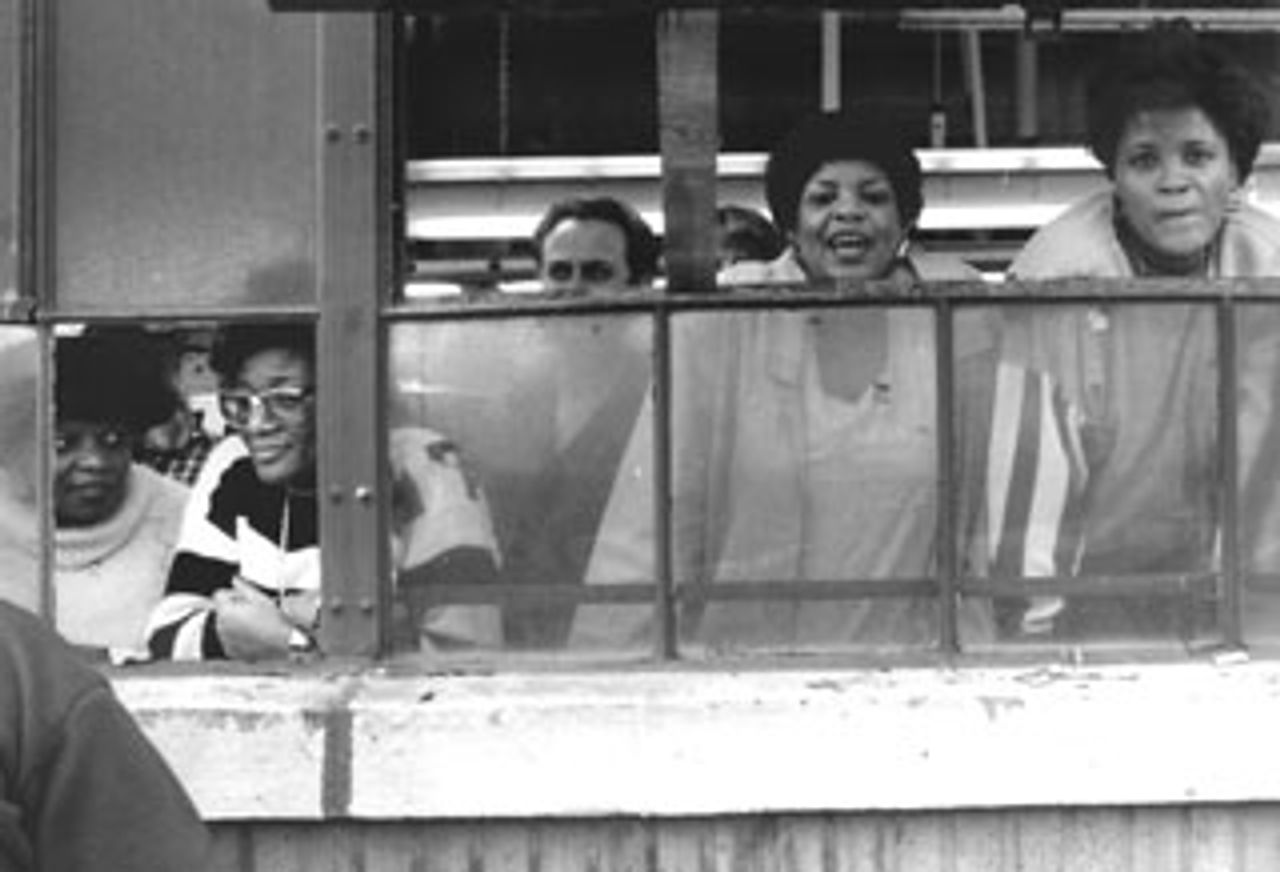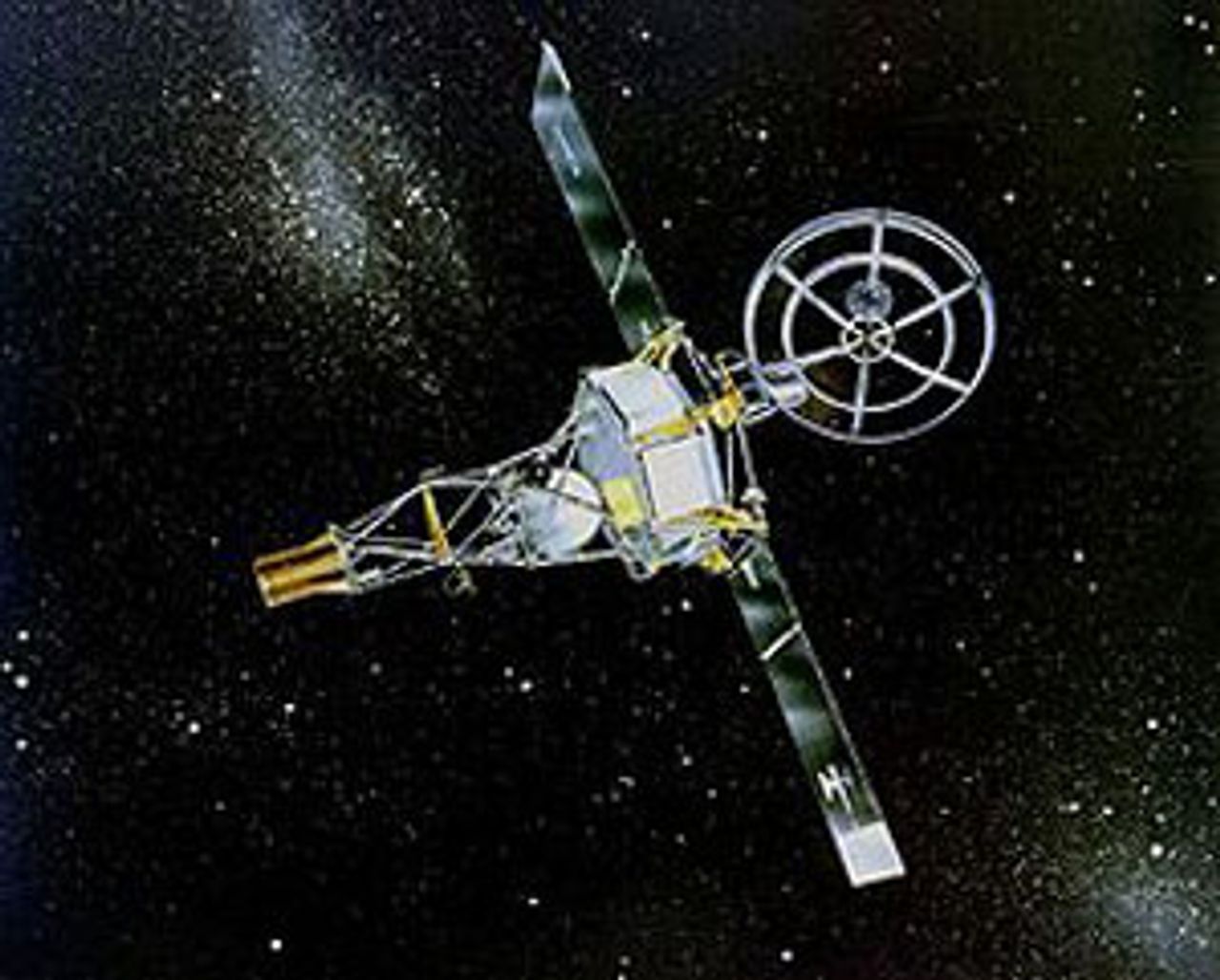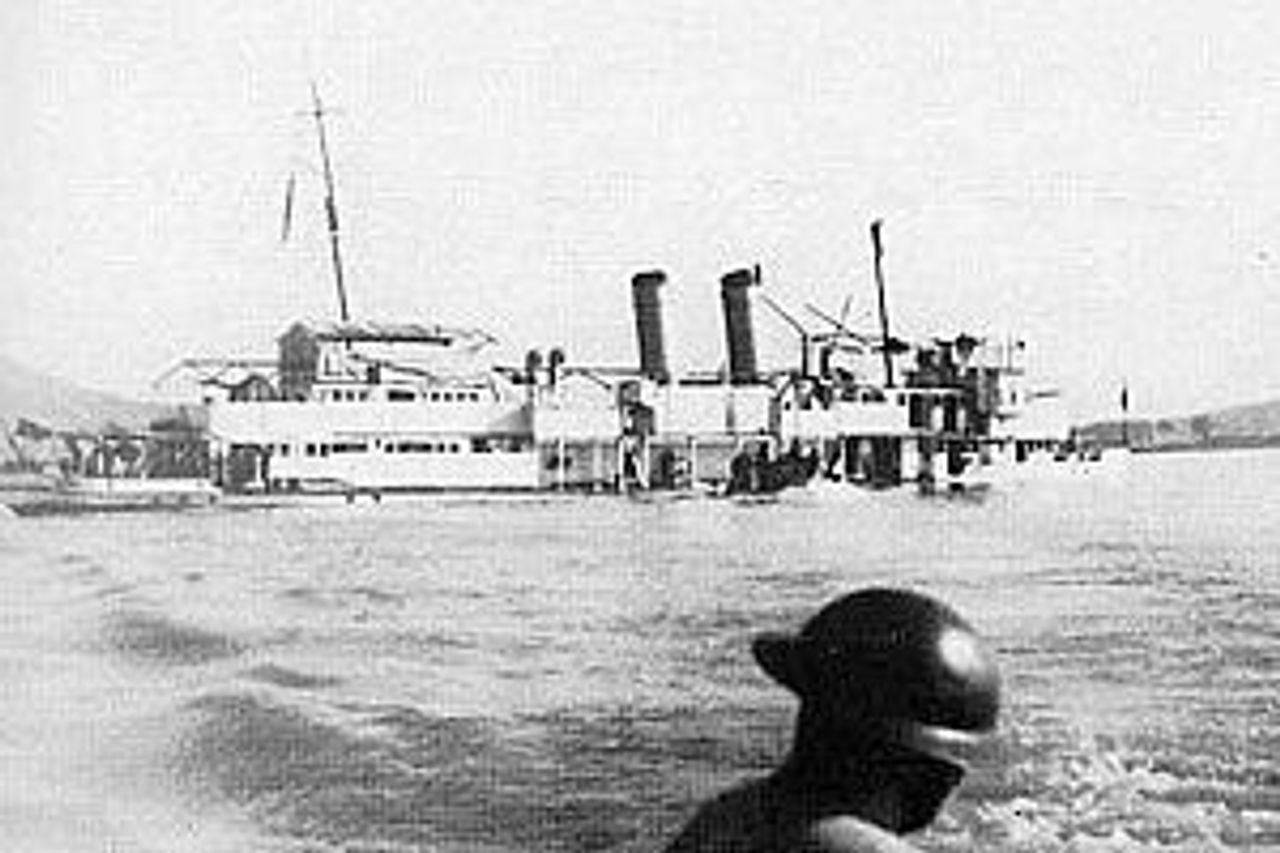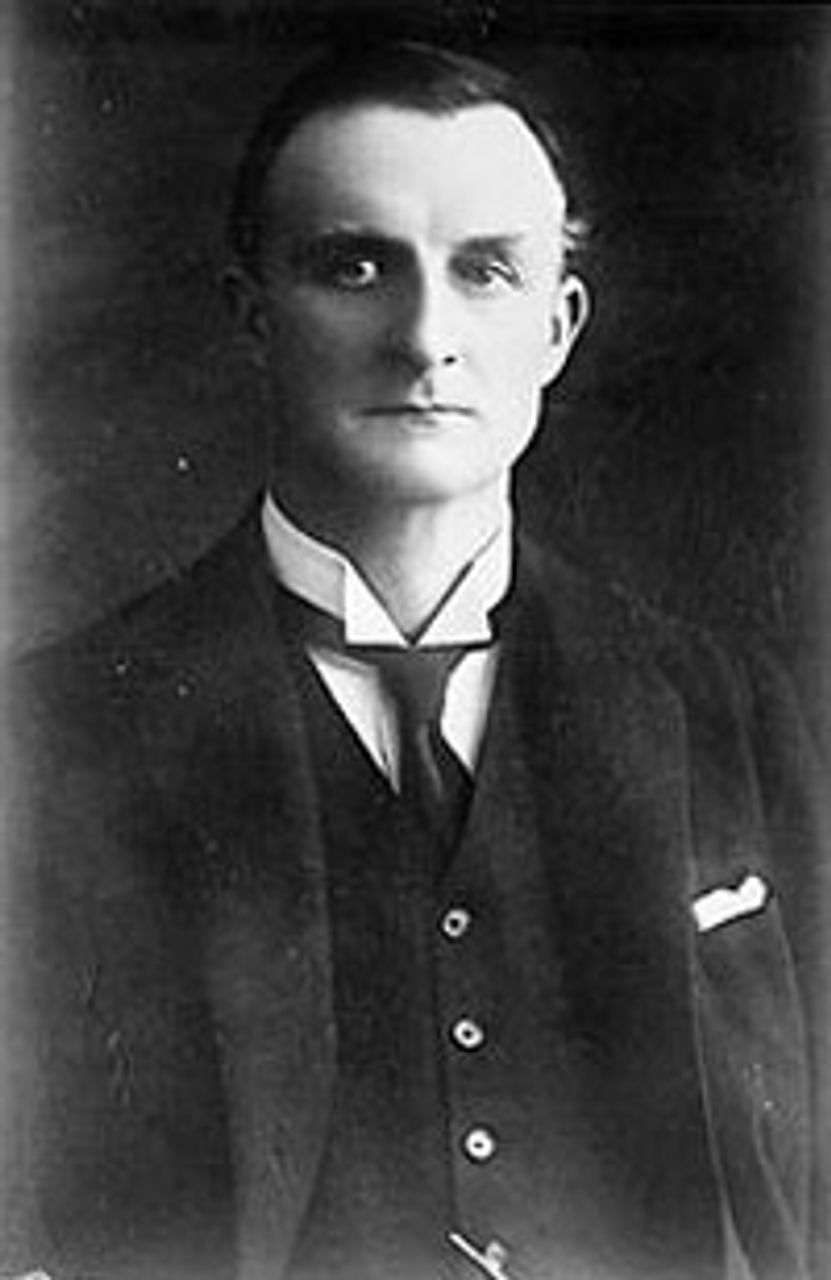This Week in History provides brief synopses of important historical events whose anniversaries fall this week.
25 Years Ago | 50 Years Ago | 75 Years Ago | 100 Years Ago
25 years ago: GM permanently shuts down first sit-down strike plant
 Workers crowd the Flint plant windows on the last
Workers crowd the Flint plant windows on the lastday of production
The plant where the great Flint sit-down strike of 1936-37 began was permanently shut down on December 10, 1987. General Motors ended production at its BOC Flint Body Assembly plant that Thursday afternoon, wiping out 2,900 jobs. Workers at the plant, members of United Auto Workers Local 581, were bitter over the abandonment of their jobs by the UAW international and local leadership, who collaborated with GM management down to the last day of production.
A worker with 18 years at the plant, Daniel Creason, told the Bulletin newspaper, the predecessor of the World Socialist Web Site, “The unions are buckling under and letting management do whatever they want. My dad worked at this plant for 75 cents an hour. He was one of the original sit-downers. If the union was as strong as it was in 1937, the people wouldn't be out here wondering where their next paycheck was coming from.”
When workers seized the plant, formerly known as Fisher Body No. 1, for 44 days in the winter of 1936-37, a national wave of strikes and plant occupations followed. On February 11, 1937, after successfully defying company goons, court injunctions and machine-gun-wielding National Guard troops, workers emerged victorious. GM gave in to workers’ demands and officially recognized the union.
Earlier in the year, in commemoration of the fiftieth anniversary of the victory, over 2,000 active and retired workers and their supporters participated in a march and rally at the union hall, directly across from the historic plant. The official UAW did virtually nothing to build for the event and its top leaders weren’t present. Kenny Malone was among several of the original sit-downers who attended the rally in February. He told the Bulletin, “What we did was the seizure of private property, the cardinal sin in this society. Roosevelt saw the danger of losing capitalism and like any skilled driver, he threw out a bone. He saved capitalism.”
The Flint plant was just one of the many auto plants slated for closure. The previous October the UAW negotiated a national contract with GM that would eliminate 70,000 jobs over the following three years.
50 years ago: Mariner 2 transmits from Venus
 Mariner 2
Mariner 2On December 14, 1962, the NASA probe Mariner 2 became the first spacecraft to transmit from another planet back to Earth, sending data from a distance of 21,641 miles above Venus.
“Earth-bound man had penetrated at last the thick blanket of clouds that had hidden Venus ever since man had looked up to the stars,” wrote the New York Times. “That moment—1:55 Eastern time of the afternoon of Friday, December 14, 1962—will go down in history as the birth of the interplanetary age.”
The communication lasted until 2:37 p.m. as Mariner 2 briefly passed through the orbit of Venus before continuing on toward the sun. An infrared radiometer scanned the planet’s cloud layer to discover its composition, while a microwave radiometer penetrated the clouds electronically to analyze surface temperature. Data was transmitted back to Earth via radio signals, a series of high-frequency electronic impulses. These were received by tracking stations at several locations that transcribed the impulses as wave-graphs, which were in turn converted by computers into code decipherable by scientists. Among other information the vessel revealed that the surface temperature of Venus was about 900 degrees Fahrenheit, dashing hopes that Venus might have been hospitable to life.
The 447-pound probe also performed the first successful maneuver in space exploration history, when scientists from the California Institute of Technology’s Jet Propulsion Laboratory readjusted its course so that it would reach Venus after it was determined that its original trajectory, charted 109 days earlier on its launch from Cape Canaveral in Florida, would take it one quarter of a million miles away from the planet.
75 years ago: Tensions exacerbated by Japanese sinking of USS Panay
 USS Panay sinking
USS Panay sinkingThe American river gunboat the USS Panay was sunk by Japanese bombers in China on the Yangtze river on December 12, 1937. The Panay was ferrying refugees away from the besieged Chinese city of Nanking (now known as Nanjing), when it was initially attacked from the air by Japanese warplanes on December 11.
The Panay anchored overnight only a few miles upstream from Nanking, but after resuming its journey up the Yangtze the following day it was attacked once more from the air. The Panay was hit by two 64kg bombs dropped from Japanese Yokosuka bomber planes and strafed by Nakajima fighter-planes. The Panay sank bow first in deep water with three fatalities and almost fifty sailors and passengers injured.
At about the same time three American-owned Standard Oil tanker ships were attacked on the Yangtze, with two sunk, and a number of British navy vessels and merchant ships on the same river were repeatedly shot at too. The Mei Ping, Mei An and Mei Hsia oil tankers were attacked simultaneously and while the Mei An was subsequently beached by the Chinese crew, the Mei Hsia and Mei Ping managed to limp back to the Kaiyuan wharf where they were bombed yet again and destroyed by raging fires.
Washington and London issued protests to Tokyo. British Foreign Minister Anthony Eden told the Commons that the Tory government had issued the “strongest protest” to the Japanese government. President Roosevelt went so far as to direct his administration’s protest directly to the Japanese Emperor himself, demanding a full and sincere apology and financial reparations for the loss of the Panay.
100 years ago: Peace talks on Balkan War commence in London
 Edward Grey
Edward GreyOn December 16, 1912, peace talks on the ongoing Balkan War began in London, convened under the auspices of the major European powers, Britain, France, Germany, Austria-Hungary, Russia, and Italy. While representatives of the Ottoman Empire met with their antagonists from Serbia, Montenegro, Greece, and Bulgaria, the Great Powers came together at a separate meeting dubbed the London Ambassadors Conference. Both gatherings were largely motivated by the concern on the part of Britain and the other major powers that the continuation of the Balkan War was increasingly destabilizing Europe and could result in a broader conflagration.
The Ottomans, having suffered a number of heavy defeats, had sued for an armistice in early December. Greece did not agree to the armistice, and on December 16, Turkey and Greece fought a naval battle in the Bosporus Strait that resulted in over 60 casualties. Turkey protested the presence of a Greek delegation at the meetings, delaying negotiations. After Turkey relented, the central focus of the meetings was the Bulgarian demand that the Ottomans surrender Adrianople and Greek demands for four Aegean Islands near the entrance of the Dardanelles. Turkey refused to concede these territories because they were viewed as a gateway to the capital, Constantinople. With both sides refusing to concede Adrianople and the Aegean Islands, talks broke down in January 1913.
The proceedings of the London Ambassadors Conference, directed by British foreign secretary Sir Edward Grey, focused on the potential conflicts between major European powers stemming from the Balkan War. In response to Serbian incursions into Albania, Austria-Hungary had mobilized troops in Bosnia-Herzegovina and Galicia. The move raised the possibility of a conflict between Austria-Hungary and Serbia’s most important ally, Russia. The conference also discussed control over the Turkish straits, the borders of Romania, and the geo-strategically significant Sanjack of Novi Pazar. The conference would continue intermittently until the end of the first Balkan war in May 1913.
